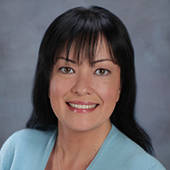How to Start Saving for Your First Home
Purchasing a new home is the quintessential statement of financial well-being; it’s what everyone dreams of and what so many people work hard for. The purchasing of a new home stands for more than just a house. It stands for settling down, it stands for elbow grease and long hours, and it stands for financial health. That said, buying a home is also expensive. Really expensive. The median price of a home in Bellevue, WA is over $600,000. From car payments to kids, everyday expenses add up fast, and the idea of putting 20 percent down on a home seems more like a dream than a reality to most of us. However, it doesn’t have to be that way. Saving for a home requires smart money management and a whole lot of discipline, but it can be done by anyone (yes, that includes you), no matter your current state of affairs. Here are some of our favorite strategies you help you start saving for your first home.
Homes for Sale in Bellevue, WA
Put your money to good use by investing it or opening a high-yield savings account
Being smart with your money doesn’t just mean budgeting and cutting back on expenses; just as important is what you do with the money that you’re currently saving. Putting savings to good use is incredibly important, and we can’t stress this enough. Opening a high-yield savings account at a bank like Ally or Marcus by Goldman Sachs is a great way to make your savings money work for you, generating passive income while you sleep. Ally and Marcus by Goldman Sachs have 2.10% and 2.15% annual percentage yields, respectively. If you have at least a few thousand saved, that means hundreds of free dollars per year will be headed your way if you keep your money in a high-yield savings account. If your current savings are just sitting in your bank’s default savings account, generating you pennies every year, open up a high-yield savings account as soon as possible. It is, quite literally, free money.
Investing your money, preferably in a relatively stable index fund, is another excellent way to make your money work for you as you start to save for a new home. Don’t be too scared of investing; if you put your money in a broad market index fund, like the VTI S&P 500 ETF or similar, you don’t need to worry too much about losing it all. Sure, the market has its fluctuations, but year-over-year you could be seeing gains much higher than if you put your money into a high-yield savings account.
How do you decide whether to invest or open a high-yield savings account? You don’t have to. Splitting your savings up into both is a great way to diversify your money, and it’ll be generating you extra cash either way. If you value liquidity, lean towards the high-yield savings account. The market fluctuates, and savings accounts do not. If you’re really tight for money and think you may need to pull it out on short notice, keep that money in a high-yield savings account as to avoid unfortunate losses. Otherwise, happy investing!
Rethink your budget by eliminating luxury spending
There are always ways to spend less money. If you consider yourself frugal, think again. Even the frugal could likely cut something out of their current spending routine. Whether we like to admit it or not, little impulse buys here and there add up, as does overpaying for groceries or food. Whether it’s the snickers bar in the checkout line, the coffee at Starbucks, or the Whole Foods grocery spree, not being disciplined about how you spend your money is one of the biggest things holding you back from saving thousands more.
This method of cutting back on little things in your current spending habits is tried and true by millionaires. Self-made real estate multi-millionaire, Graham Stephan, hasn’t bought a coffee in years. Instead, he makes his own every morning, for a grand total of twenty cents a day (here’s how he does it, for those of you who are interested). It doesn’t have to be coffee, though. Yes, cutting out store-bought coffee is great, but it all depends on the person. If you spend money on milkshakes or fast food, avoid that whenever possible, and try to make as many simple home-cooked meals as possible. If you eat out frequently, heavily cut back on that (better yet, stop it altogether). A dollar spent on a McDonald’s cheeseburger is a dollar that is not growing in a high-yield savings account or an index fund. Each dollar adds up over time, and you could be missing out on a huge portion of new home savings if you aren’t cutting out excess luxury spending.
We’re not saying you can never splurge. Everyone needs some enjoyment in their life, and yes, you can still eat out once in a while. But when you do, budget for it. Don’t eat out on a whim on a Friday night, set aside a certain amount in your budget that doesn’t take away from your current savings, and then do it. The bottom line here: stop spending money on things you don’t need to survive, and instead save that money for the down payment on your future home.
Maintain (or establish) really good credit
Credit may not be the first thing that comes to mind when you think about beginning to save for a new home, because it isn’t physical money. However, when you go to get a mortgage, your credit score will very quickly translate into physical money in terms of mortgage rates. A few extra points of credit can mean hundreds of dollars less in payments each month, and having an excellent credit score is absolutely critical for getting a good mortgage rate. No, not a good credit score. An excellent one. A credit score of at least 760 is recommended for the lowest interest rates, which can save you tens of thousands of dollars in the long term.
What if your credit isn’t there yet? You’re not alone. The average FICO credit score is 704, meaning that most people don’t qualify for the best possible mortgage rate. This is why credit is so important to think about before you start saving for a house. It takes time to raise a credit score significantly. What we recommend you do is pay off your credit card in full every single month. That’s it! Never use a credit card to buy things you can’t afford, and never get into debt. As long as you spend within your means and pay it off every month, you’re well on your way to that 760 credit score.
Make some extra cash by starting a side hustle
Side hustle culture has become huge over the past few years, but it’s still viewed as unorthodox and unappealing by many. However, a side hustle can be a great way to start saving for a new house, especially if your current budget doesn’t have much wiggle room. Driving for Uber or Lyft, applying for focus groups online, or, if possible, getting a part-time job in addition to your current one are all great ways to add supplementary income for savings.
Side hustles can pay a decent amount of money. Many Uber and Lyft drivers make significantly more than minimum wage, and there is the added flexibility of being able to do it whenever you have a spare few hours. Focus groups online, though they can sometimes be tricky to qualify for, often pay hundreds of dollars for a single hour of your time. Respondent.io, Recruit & Field, and Watchlab are some of our favorites. If you manage to qualify for one or two focus groups a month, that’s an extra couple thousand dollars a year that can be put into your house savings fund. Part-time jobs, if you can find one that’s flexible in your area, are also excellent ways to generate some extra cash. You’ll need to find one that provides the hours you want, but they’re a steady way to bolster your house savings.
Look, we get it. Nobody wants to do extra work, and side hustles can often seem like too much of a hassle. Everyone has plenty of expenses, and many find it hard to cut back. If you’re finding it very difficult to make space in your current budget, though, you should seriously consider this as a viable way to make extra money that can be put directly into your savings for a new house. No matter who you are or your current situation, saving for a home is attainable. Though it may seem hard to start saving for one at first, perseverance and discipline go a long way in the pursuit of your first house. Following all of the strategies listed in this article will certainly give you a good start, and we encourage you to always look for more opportunities to save money. Whether you cut back on Starbucks, put all your money into a high-yield savings account, or start a side hustle (ideally all three), every strategy you implement is just another step towards saving up for your first home.
Search Condos and Townhomes for Sale in Bellevue, WA



Comments(1)